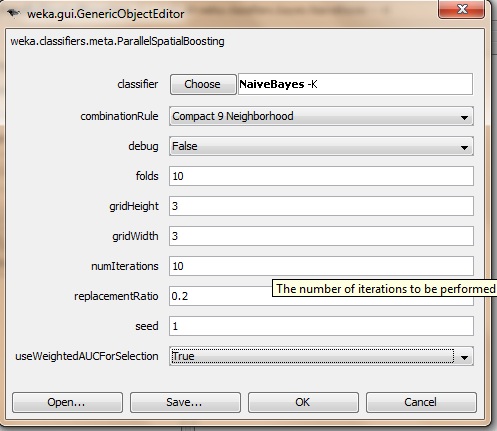Paper: A Spatial EA
Framework for Parallelizing Machine Learning Methods
Abstract: The scalability of machine
learning (ML) algorithms has become increasingly important due to
the ever increasing size of datasets and increasing complexity of
the models induced. Standard approaches for dealing with this issue
generally involve developing parallel and distributed versions of
the ML algorithms and/or reducing the dataset sizes via sampling
techniques. In this paper we describe an alternative approach that
combines features of spatially-structured evolutionary algorithms
(SSEAs) with the well-known machine learning techniques of ensemble
learning and boosting. The result is a powerful and robust framework
for parallelizing ML methods in a way that does not require changes
to the ML methods. We fi�rst describe the framework and illustrate
its behavior on a simple synthetic problem, and then evaluate its
scalability and robustness using several diff�rent ML methods on a
set of benchmark problems from the UC Irvine ML database.
Source Code for All Experiments
Many of the WEKA algorithms have bugs when run with multi-threaded
code (IBK, nearest neighbor code for example), hence we
implemented two different packages. One, complete single-threaded
WEKA classifier, that can work with explorer and experimenter in
generic way. Only thing is while running the experiments, seed
have to be manually changed. The parallel algorithm uses the "time
in milliseconds" as the large seed for getting the validation set
from the training set. Having a large seed is important for
getting different sample of the data to train and validate when
running multiple runs of the algorithm.
Parameters when running through WEKA (note the
useWeightedAUCForSelection which uses the validation set to get AUC
instead of just % correct is used)
- Parallel Multi-threaded Implementations

